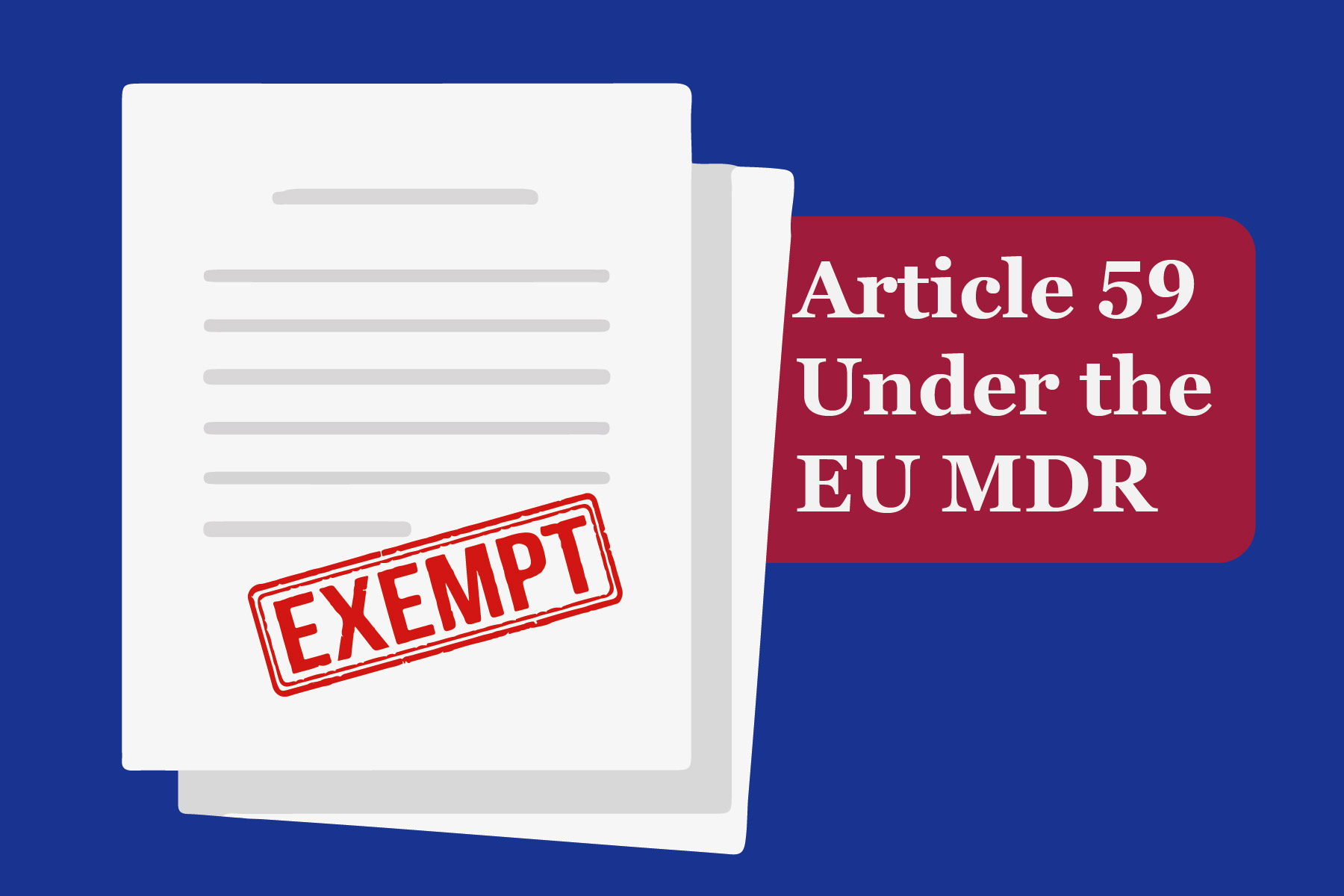The EU regulators delayed implementation of the EU MDR by a year with its new date of application now being May 26th,2021. However, Article 59 of the EU MDR went into effect on April 24th,2020, and also encompasses the EU MDD.1
Article 59 of the EU MDR states that ‘’The national competent authorities may authorize, on duly justified request, the placing on the market and putting into service within the territory of the Member State concerned, of a specific device for which the conformity assessment procedures referred to in Article 52 of Regulation (EU) 2017/745 or, for the period from 24 April 2020 to 25 May 2021, Article 9(1) and (2) of Directive 90/385/EEC or Article 11(1) to (6) of Directive 93/42/EEC, have not been carried out but the use of which is in the interest of public health or patient safety or health”.1 Meaning medical devices may be placed on the EU market if they meet certain requirements.
The following must be met to claim an exemption from the CE mark:1
- At least one national exemption has been granted and notified to the EU Commissions for that medical device
- The justification for the exemption has been made available to the EU Commission and all Member States.
- There is clear identification of the device for which the exemption is granted including its intended purpose and the manufacturers’ information.
- All technical documentation of the device as well as the outcome of the competent authority’s assessment must be shared with the Commission and the member states.
The following justification must be considered when granting such exemption:1
- The concerned medical device is of vital importance to public health
- No other similar products are available on the market
- The device does not indicate any risk to patient safety and health
- The exemption is temporary and valid only until the CE mark conformity assessment is performed.
Wondering whether your product fits into this criteria? Call us today at +1 248-9874497 or email us at info@emmainternational.com to know more about how these requirements may impact you.
1EU Commission (May 2020) COMMUNICATION FROM THE COMMISSION Guidelines on the adoption of Union-wide derogations for medical devices in accordance with Article 59 of Regulation (EU) 2017/745 retrieved on 12/16/2020 from https://eur-lex.europa.eu/legal-content/EN/TXT/PDF/?uri=CELEX:52020XC0519(01)&from=EN






